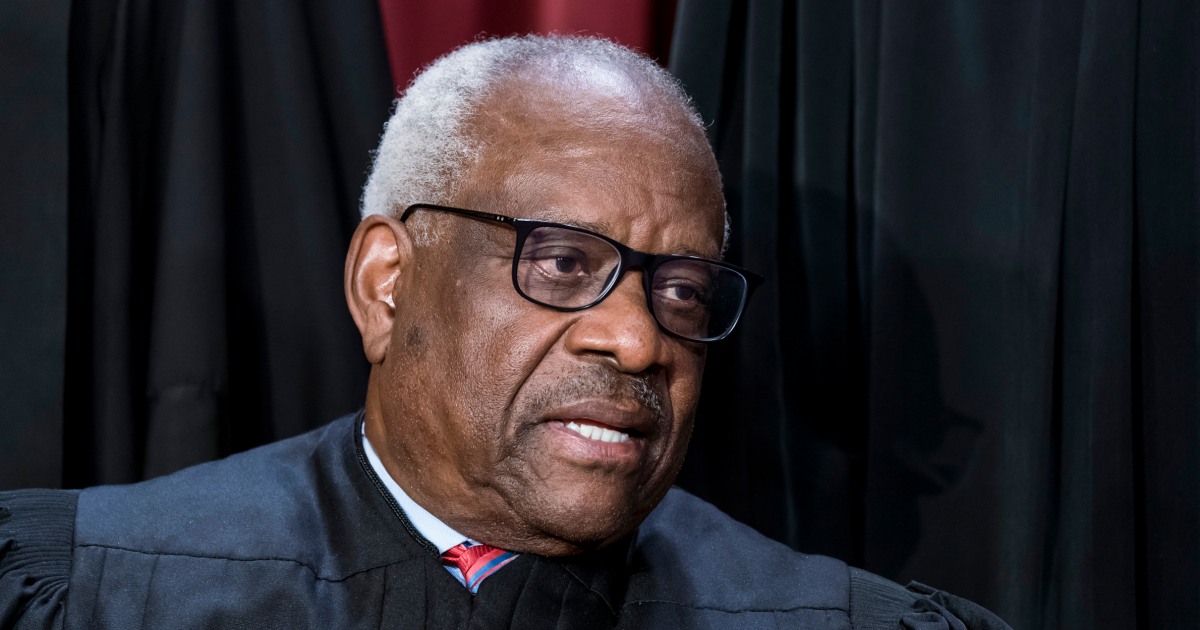 [ad_1]
[ad_1]
“Why not invite Justice Thomas?”
Senate Judiciary Committee Chair Dick Durbin, D-Ailing., gave a curious response to that straightforward query on Sunday from NBC's Chuck Todd on "Meet the Press." The query adopted latest reviews of Supreme Court docket Justice Clarence Thomas’ undisclosed monetary ties to a GOP billionaire, which prompted Durbin to announce hearings into the excessive courtroom’s low moral requirements.
Durbin instructed Todd that he assumed Thomas would ignore the committee's invitation, so he didn’t lengthen one. Sure, actually, you'll be able to watch him say that right here:
As a substitute of explaining why he thought Thomas would reject an invite, or why that hypothetical rejection ought to block an invite earlier than one is prolonged, the Democratic senator deployed a non-sequitur, claiming that it will be higher for Chief Justice John Roberts to testify.
It’s all nicely and good for Durbin to succeed in out to Roberts. However along with affected by the clear logical flaw that nothing stops a number of justices from testifying, specializing in Roberts on the exclusion of Thomas misses the purpose.
The unhappy alternate underscores why Supreme Court docket justices act like there isn’t an actual test on them.
Roberts is the chief, positive, and he has administrative obligations that different justices don’t. Nevertheless it’s not like he’s in command of his fellow justices’ conduct, precisely. At any price, Roberts wouldn’t probably know the solutions to the particular questions raised by Thomas’ relationship with that billionaire, Harlan Crow, which are nonetheless unanswered following ProPublica’s bombshell reporting on Crow's items that the justices did not disclose, in potential violation of a post-Watergate regulation.
To take only one instance amongst many unanswered questions, Thomas stated in an announcement after ProPublica’s reporting that he “sought steering from my colleagues and others within the judiciary, and was suggested that this type of private hospitality ... was not reportable.” Who suggested Thomas? What did he inform them?
In terms of these questions and lots of others, does Roberts know the solutions? If Roberts does know, would he inform the Senate? The purpose is that, even when Roberts had been to testify (not one thing to wager on, both), there’s little motive to assume he might reply questions that Thomas is healthier geared up to handle in any occasion.
And, only a day after Durbin's deference to the justice on "Meet the Press," Bloomberg Information reported on Monday that Crow did have enterprise earlier than the courtroom in no less than one case, whereas Thomas had beforehand pointed to Crow's supposed lack of enterprise earlier than the courtroom as justifying the justice's non-disclosure.
Now, if it got here to subpoenaing any of the justices, that might be a tricky authorized battle. And the absence of Democratic Judiciary Committee member Dianne Feinstein for well being causes, which curbs the Democrats’ committee majority and subpoena energy, might partly be animating Durbin’s weak strategy.
But when that’s the case, Durbin would do higher to notice these actual points, quite than withdrawing from a combat earlier than one begins. Certainly, the unhappy alternate underscores why Supreme Court docket justices act like there isn’t an actual test on them— as a result of it doesn’t look like there's one.



